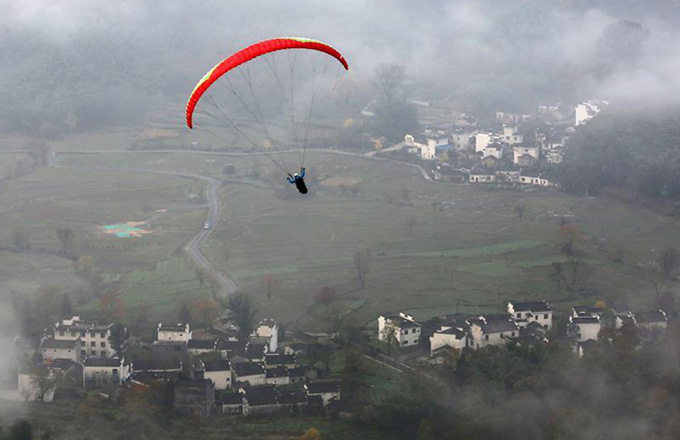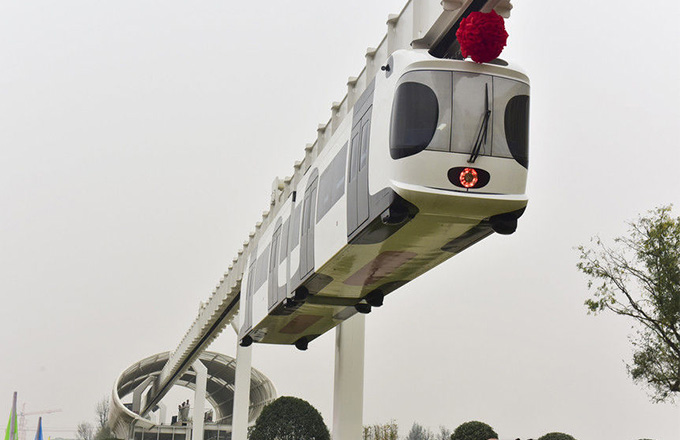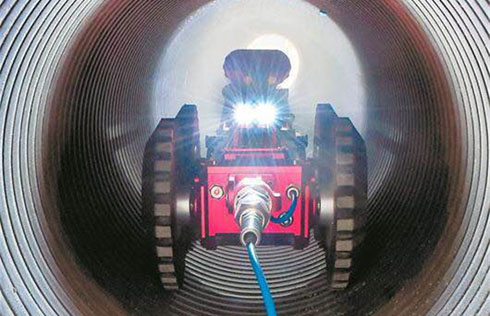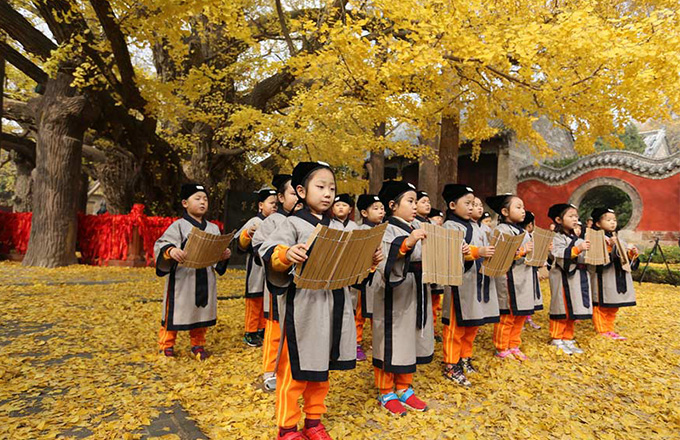Officials monitor plants to clean up the environment
![Smoke rises in an industrial zone in Zhuzhou of Central China's Hunan province in March last year. [PROVIDED TO CHINA DAILY] Officials monitor plants to clean up the environment](../../images/attachement/jpg/site1/20130218/00221917dead128ba4c411.jpg) |
|
Smoke rises in an industrial zone in Zhuzhou of Central China's Hunan province in March last year. [PROVIDED TO CHINA DAILY] |
For Xiao Liyang, 53, who has lived his whole life in Zhuzhou, the decision to move and change his job came in 1992 because of the terrible environmental quality.
Xiao, who then worked in a chemical plant in Shifeng district, where many factories and businesses are located, said the air was filled with smoke dust and smelled sour in the 1990s.
Zhuzhou, in the northeastern part of Hunan province, has been an industrial city for several decades, known for industries including non-ferrous metal smelting, chemical engineering and electric locomotive manufacturing.
While these heavy industries drove the city's economy to greater heights, the pollution got increasingly worse.
Unable to take the pollution, Xiao quit his job and moved to the downtown area and found new work in a trading company.
Xiao was not the only one troubled by the pollution. In 2003, the city government realized the severity of the problem and devised a plan to improve the environment.
"The high GDP growth generated with the pollution of environment was black GDP, and civilians were not happy with it," said Li Binong, director of the Zhuzhou environmental protection bureau.
"To clean it up, decisive action was taken in restructuring industries, and removing and eliminating polluting businesses," Li said. More than 150 companies have been relocated or closed since the country's 11th Five-Year Plan (2006-2010) period, he said.
The loss of these enterprises didn't cause the city's economy to buckle. Instead, its GDP kept an annual growth rate exceeding 13 percent, Li said.
To better monitor the environment and enhance the efficiency of green management, the local government invested 38 million yuan ($6 million) to install a digital environmental protection system in 2011. It officially started running in September.
"We built this system because still there were industrial enterprises that discharge pollutants in levels exceeding the standards, and we can't watch them around the clock," said Li.
The technology allows the city to monitor its large and medium-sized enterprises. If emissions exceed the standards, an alarm is given and a law enforcement team takes immediate action, he said.
"A lot of chimneys have been torn down in the past decade, more than 100, and I think the environmental quality has improved dramatically in recent years," said Li Yongyu, a resident in his 40s.
Companies cannot secretly emit pollutants since the system went into operation, and local environmental watchdogs now only worry about unexpected incidents, like those caused by weather, said Cao Langbo, an official at the bureau.
The bureau intends to build information platforms in the city's five squares this year.
The platforms will have devices that can test the noise and sulfur dioxide content in the air, for instance, and LED screens that display real-time test results to the public.
The bureau pays close attention to residents' concerns.
Those who want to complain about environmental issues can call a hotline and post comments online, and the bureau addresses such complaints as soon as possible.
Citizen representatives have access to the forums held by the bureau once or twice a year, where they can offer advice on the environment and ask officials questions.
"There are about 30 representative netizens, all of whom are local residents. We select them because they complain the most about the environment and are concerned," Li said.
Public supervision plays an important role in green efforts, and the local government's communication and exchange of ideas with non-governmental green organizations will help discover the subtle problems existing in the green work, said Hou Yuxuan, an environmental protection researcher at CIC Research Center, an industrial consultancy in Shenzhen.
Although Zhuzhou has made strides in improving the environment, many problems remain, and these problems can be solved only with the backup of the central and provincial governments, Li said.
The problems include the 2 million tons of industrial waste in Qingshuitang of Shifeng district, discharged by Zhouzhou Smelter Group Co Ltd and Hunan Zhuzhou Chemical Industry Group Co Ltd, which began producing the waste in the 1950s, he said.


























